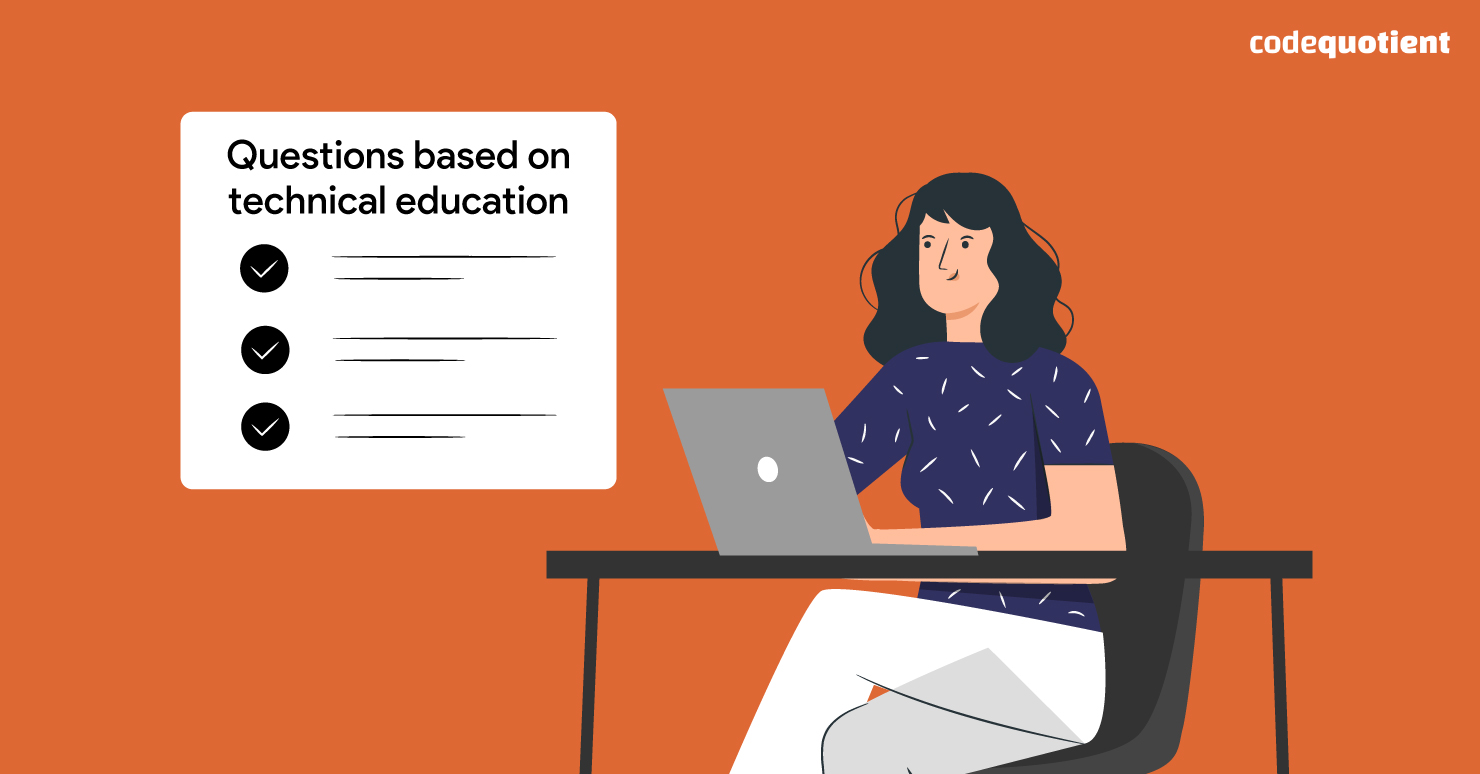If you are looking for a job in the IT sector, the technical round becomes an integral part of the selection process. Companies prefer to conduct multiple rounds of technical interviews as recruiters do not want to lose talented candidates just because they had one bad day. Hence, we will examine some common technical round questions, especially the curveballs, that are asked during job interviews.
These questions aim to assess a candidate’s technical skills, logical reasoning and problem-solving aptitude. Responses to these questions can vary from person to person. Thus, we will provide tips with sample answers about how to respond to them.
Common Technical Round Questions One Can Expect During Interviews
The first thing to know about technical interview questions is that they are notoriously unpredictable. A company may ask common questions related to technical skills, education, soft skills, personal traits, coding skills, past projects, behavioural and situational aspects, etc. Each segment can be approached in a certain way. Although responses will be unique to each candidate, here are some general guidelines for answering them.
Type 1: Common technical round questions based on technical background

- What is your technical background?
- What are your technical certifications?
- How did your educational background prepare you for this job?
Tips:
The interviewer asks such questions to determine a candidate’s educational background. One needs to emphasise the relevant qualifications that are intrinsic to the job applied for. Mention all the courses, certifications, internships, etc., that you have done and incorporate them into your answer.
Sample answer:
“I have done my (your bachelor’s degree) from (your college) and completed my master’s in (the programming language you opted for) from (the college you completed your master’s from). In addition, I have completed a certification course on (the programming languages you have learned). After that, I interned with (the company) for a period of (the duration of the internship). I believe the knowledge I have acquired from my lectures and on-the-job experience has prepared me for future challenges.”
Also read: Do We Really Need Data Structures and Algorithms for Web Development?
Type 2: Questions based on technical knowledge
- What would you do if you needed to learn a different programming language to work for this company?
Sample answer:
“I am confident with (the languages you know) and have worked with them extensively. I enjoy the learning process, so if I need to pick up another programming language, it won’t be an issue. I am confident that I can pull it off.”
- What is an IP address?
- What is a VPN?
- What is a CPU?
Tips:
You may think these are silly technical questions, and even a 5th grader can answer them. However, the interviewer expects you to have a clear understanding of basic concepts. They need to check how you respond to them and how well you can explain technical concepts in an easy-to-understand way.
Note: Questions in this technical interview segment can cover a vast area. Keep your basics clear and be ready to dive deep into concepts, programming, system development, etc.
Type 3: Questions based on behavioural and situational aspects
- Are you good at working as a team or prefer working alone?
- Tell me about a time when you disagreed with your team and what you did next.
Tips:
With these technical interview questions, the interviewer tries to gauge if the candidate is a team player or not. Focus on the aspects where you contributed as a part of a team. If you are a fresher, talk about how you contributed to group technical projects in your college. Highlight the qualities that project you as a team player. Talk about how you incorporate feedback from other team members by having a healthy discussion. Research the company, evaluate job descriptions to find out problem-solving skills and duties that relate to the job, and explain how you implement those skills to resolve disagreements with your team members.
- Tell me about a time when you made a mistake and how you handled the situation?
Tips:
Making mistakes is a part of the learning curve. However, how you address them tells a lot about your character. The interviewer wants to see if you are honest and have the necessary frame of mind to admit and rectify your mistakes. It can be tough to refer to past mistakes, but be careful not to mention traits that project you in a bad light, avoiding wrong answers.
Sample answer:
“I was working with XYZ company and was responsible for updating the code. Although I had tested the codes before deploying, I forgot about a line of code. As a result, the system prompts an error. When I realised I was at fault, I immediately went to my manager and explained the whole situation to her. She realised that it was a genuine mistake, and the whole team put in the effort, and the situation was brought under control.”
For more insights into how to crack coding interviews, check out our Coding Exam Guide.
Things to Remember During This Common Interview Questions
- Listening is the key. Listen to the interviewers, understand what they are trying to convey, and answer accordingly.
- Learn about the company, and update your CV accordingly. Structure your responses to highlight your skills and best traits.
- For situational and behavioural questions, follow the STAR method, which involves describing the situation, the task at hand, the action you took, and the result of those actions.
- Being a job seeker, you are expected to be calm and polite. Don’t rush your answers.
- Do not lie or give wrong information to the panel.
- Do not hesitate to ask relevant questions when asked by the panel. Asking questions shows your interest in the idea of joining the company.
- Prepare to impress the interviewers. Dress sharp, arrive on time, speak confidently to show your communication skills, and maintain a positive attitude.
We hope these common technical round questions will help you understand the fundamentals of technical questions. If you’re looking to enter the technical world as a programmer, CodeQuotient‘s Software Engineering Bootcamp can help you build a strong foundation. The program is designed for learners who want to advance their technical knowledge. It comes with pre-placement training so you can ace your interviews. Are you ready to get started? Apply today.




